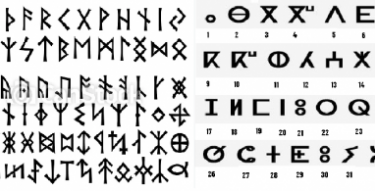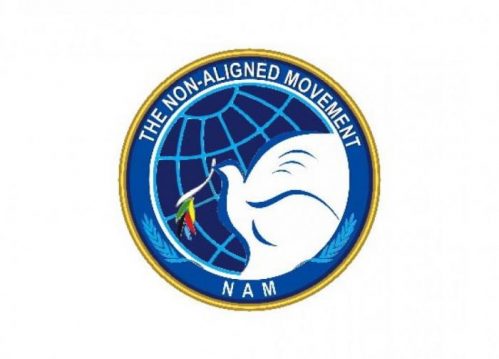Would the Kabyle be this congenital agnostic?
Algerians have trouble with the reckless Kabyle spirit. They do not know how to categorize this people, nor where it would come from! Thus they call him sometimes “Hizb França” (meaning “vassal of France”, despite the fact that kabyles are mainly the instigator and the linchpin of the glorious war of 1954-1962 that ended French rule in North Africa. Kabyles are called sometimes “Jew” or downright “Zionist” even if they do not share any identity value with them.
But why?
Have we seriously thought about explaining that nagging question of Algerians on the real identity of the Kabyle people and this immemorial enmity between Algerian and Kabyle?
The plausible track, worthy of being explored by sociologists and anthropologists provided with authority, would be linked to this undeniable Kabyle particularism: Agnosticism.
In the eyes of Algerians, Kabyles seem to believe fervently to no god, no being (even transcendent), no thing and no concept.They do not subject themselves to any king, nor obey any leader who was not elected by their common will. Is it the the sublimation at the height of an inveterate pragmatism? According to them, the Kabyle worship only their Amazigh origins, particularly through the paragon (Paradigm) “Tamazight” and nothing else! In doing so, it seems they have not entirely wrong!
In fact, the Kabyles have maintained since the beginning of time, a so intimate relationship, so reverent with nature that sometimes they fuse in it inextricably. They give themselves the place name “IMESDURAR” (Highlanders) to designate themself, it is to say! This “Naturo-centrist” inclination would make them agnostics without knowing it. Indeed, if the Kabyles seem to venerate them Kabyle roots, and therefore Amazigh, their roots, origins, it is because they know that without them they will not be. And if they are not anymore, their agnosticism would not be either. And, inevitably, there would have been only “Arabs”, or those who believe being arabs in North Africa! North Africa would look more like Syria, and not the Italian Tuscany!
But what is agnosticism and how is it reflected in common terms to that it could categorize at this point the Kabyle, this indomitable “Rebel” irreducible independentist about whom both historians and french colonial ethnographers had written, but also the Arab fantasists and even the Spanish chroniclers?
Agnosticism is an attitude of mind considering the transcendent truths (which do not depend on the multiplicity of people opinions), concerning in particular the existence of God or gods as non-recognized a priori. Thus, the Kabyles as perfect agnostics, refused to decide on the matter for centuries, unlike the believers who consider probable or definit the existence of such deities, or atheists who believe they are improbable or impossible.
Thus you will commonly hear the Kabyles calmly plead their inclination to agnosticism, as normally as even without blinking, by agreeing to say there is no tangible and definitive proof for the existence or non-existence of the divine, consequently, they argue unable to give an opinion.
One should certainly read here the foundation, or rather the origin, of their traditional secularism (in the sense of benevolent neutrality in relation to those shaky ideas) adopted as a social norm and socio-political value in the functioning of their village structures, and which value they remain to this day deeply attached for centuries. This assumption is sufficiently important because it helps to sketch some explanation, even if incompletely, on why Arabs, French and Algerians categorize the Kabyle by “Unholy”, “Barbarians” and others by “Ramadan eaters” without proof about the epithet thus afforded to them.
We must emphasize, however, that if agnostics refuse to give an opinion on the existence of a certain higher truth, they do agree, however, or at least tend to not grant any transcendence and no sacred value to religion whatsoever (and therefore their prophets, the Messiah, their sacred texts …) and their institutions (Mosques, Imam, clergy, various rituals and requirements …).
They see indeed religions as mere social and cultural constructions that would mostly have a political function of grabing their land and the pretended historical role to ensure the cohesion and order in traditional human societies via for instance the threat of death for apostasy in Islam or hell, the promise of heavenly virgins in heaven or the afterlife, etc …
By Dahman At Ali
Homage to our god, Anzar, rendered by Azal Belkadi





Certain Kabyle people seem to be in shock to see Islam being represented by the head-cutters and repeat loudly that this Islam is not that of their parents.
They need to know that the “Islam” of their ancestors is not the Islam of the Quran and the hadiths. It is a millennial and traditional way of life from our ancestors from before Judaism to the present day. It is a set of human behaviors and values that are innate and grow over time. Islam, Judaism, Christianity, socialism had enriched themselves with Amazigh values. See the writings of Saint Augustine, Cyprian, Arius, and Marx. Islam and other religions are less powerful than universal Amazigh values. Are there any head cuts in our values? Are there prisons in our values? Is there a god or a saint who burns humans? Is there a man who did not help his fellow man or an animal in danger? The tree, the animal, the insect are all considered and revered. The more we advance in their religions, that of the Koran and the hadiths, the more we discover that they are far from humanism and nature. In addition to all this, I remind them that in the Kabyle language it is the word Rebbi, not Allah, who designates the god of the Kabyle. When the Kabyles summons their god, they never use Allah, but Rebbi.